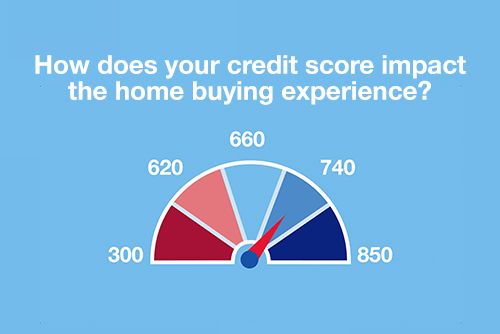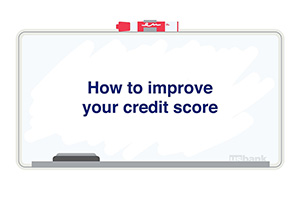Your credit score is a way to assess how responsible you are financially and determine whether to give you a credit card or loan, rent you an apartment or even establish cable, telephone or water service in a new home.
So, how can you improve your credit score, or maintain your good credit score? Here are six simple ways to build, maintain and improve your credit score:
1. Pay your entire balance on time every month to improve your credit score
Your payment history makes up 35 percent of your credit score, and paying credit card bills late can impair your ability to get more credit or a lower interest rate down the road.
If you are accustomed to paying the entire balance of your credit cards monthly, that’s great, but add a layer of security by setting an alert on your phone and marking your calendar to send your payments in on time! If you’re able, always take advantage of automated bill-payment options.
2. Use credit cards responsibly to maintain your credit score
When calculating your credit score, there’s a heavy focus on your credit behavior. Responsible use of credit cards can improve your credit history. The key word here is “responsible!” Stay within your means, and make sure your credit limit doesn’t exceed the money in your savings account.
Consider applying for just two cards—a credit card at a local department store or gas company, and a major credit card. Use these cards on small purchases and, as stated in the first tip, pay the balances in full monthly.
3. Stay below your credit card limits to maintain your credit score
Maxing out your credit cards can raise red flags about your ability to handle debt. Many experts recommend that you avoid using more than 30 percent of your available credit at any given time. For example: If your credit card limit is $1,000, avoid carrying a balance of more than $300 from month to month.
4. Get out in front of bills, loans and debt to maintain your credit score
Sometimes the minimum payment is all you can afford, but paying down credit card balances as quickly as you can might raise your credit score. Try adding even a small amount to your minimum payment each month—every bit helps.
Look for the section of your credit card bill that details how long it will take you to pay off a balance with only the minimum payments, and strive to cut that time down. And if you have an installment loan, try your best to pay it off early.
5. Review your credit reports every year to improve your credit score
If you find a mistake, contact the credit-reporting agency and discuss it with them. You can check your credit score through a variety of services, or check it via the U.S. Bank Mobile App.
6. Avoid opening too many accounts at once to maintain your credit score
Creditors want to see that you can handle debt. But by opening—or trying to open—multiple credit card accounts in rapid succession, you can actually lower your credit score. If you open a credit card at your new favorite department store, wait a few months (or longer) before applying for additional credit. And think: The more credit cards you open, the more you need to keep track of!
If you are already concerned about a low credit score, read on to learn about repairing bad credit, or make an appointment with a personal banker who can answer your questions.











































































